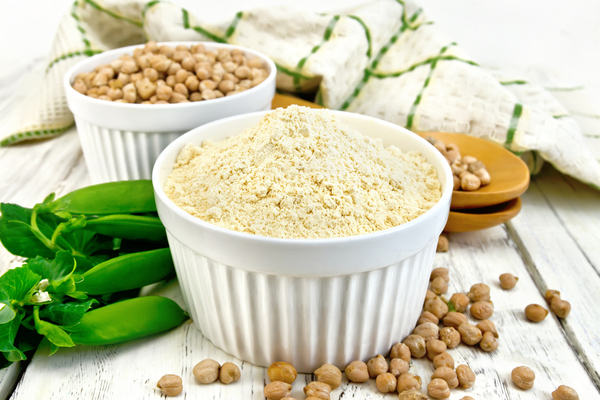In 2019, consumers embraced plant-based meats, ensuring this way of eating is not just a fad. But this growing movement will see a shift beyond the current “it” ingredient: pea protein. While soy has been a common meat analog for decades, pea protein has been a vital building block to many plant-based meat items recently. It’s the foundation of Beyond Meat’s products and is also the base for Lightlife’s Plant-Based Burger and Nestlé’s Awesome Burger.
Pea protein has an impressive nutritional profile, is inexpensive to grow and process, and is easy to supply. Grand View Research estimated the global pea protein market would be worth $313.5 million by 2025, increasing at a compound annual growth rate of 17.4%. But Maria Velissariou, chief science and technology officer for the Institute of Food Technologists, says existing producers of pea protein are getting stretched by increasing demand. “We’re going to see other forms of protein from other sources coming into the market, so new innovation will probably rely not just on pea protein, but will rely on other similar sources,” she said. “… We’ll see alternatives coming into play as long as the alternatives deliver against the texture and they deliver against the flavor. And, of course, the price has to be right, though at the moment, consumers are prepared to pay a higher premium for this product.”
Mushrooms are getting more popular, especially in meat-like snack applications. Other legumes, like chickpeas, are bound to also find themselves in the mix. Outside of the realm of meat, companies have found other diverse substitutes to simulate products from animals, like the wide varieties of nuts and grains in plant-based milk, Siggi’s partially macadamia nut-based vegan Icelandic yogurt, and Just’s mung bean-based Just Egg.
And while other legumes may be brought into the plant-based meat puzzle, up-and-coming offerings are from extremely diverse places. Sustainable Bioproducts is working to turn a high-protein fungus found living in a volcano into food products that could hit the market this year. Prime Roots plans to start selling its meat and seafood alternatives made from koji, a fungus commonly used in Japanese cuisine to create an umami taste, online at the beginning of the year. Ingredient company Noblegen recently achieved self GRAS status on a flour made from one-celled organism euglena, which can be used in many alternative protein products. And Air Protein is exactly what its name sounds like: A startup that uses cellular processes to turn carbon dioxide into edible, nutritious protein.
Even the bigger players in the space like Beyond Meat and Impossible Foods are constantly reformulating their products with the goal to improve taste, nutrition profile, appearance and slim down ingredient lists, while others are perfecting formulations for 2020 launches. All in the name of better tasting food, health, the environment, and of course, profits.
—
Photo Credit: kostrez / Shutterstock.com
